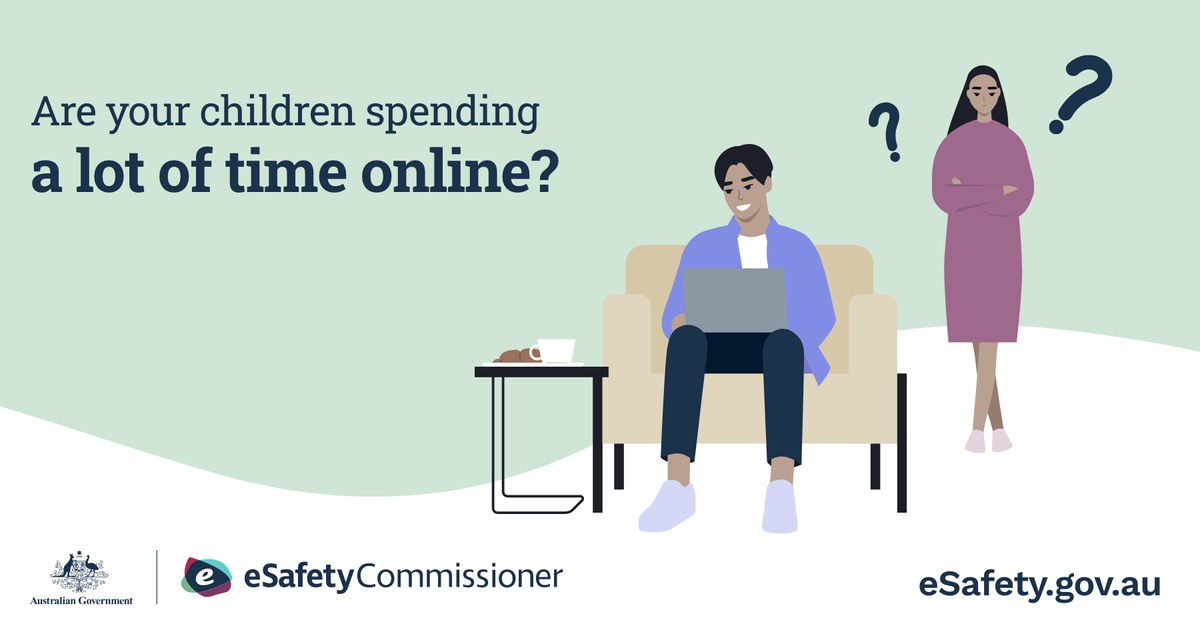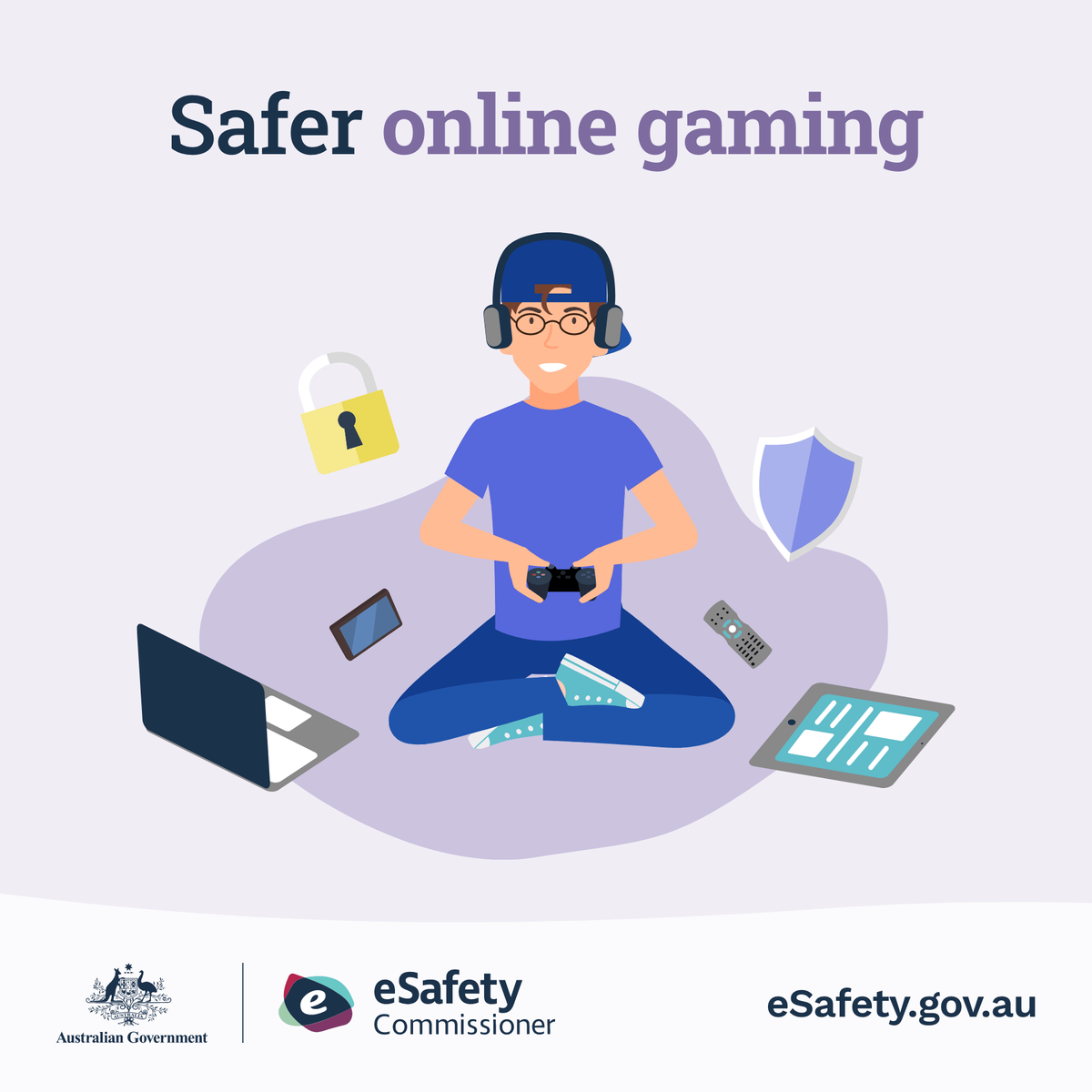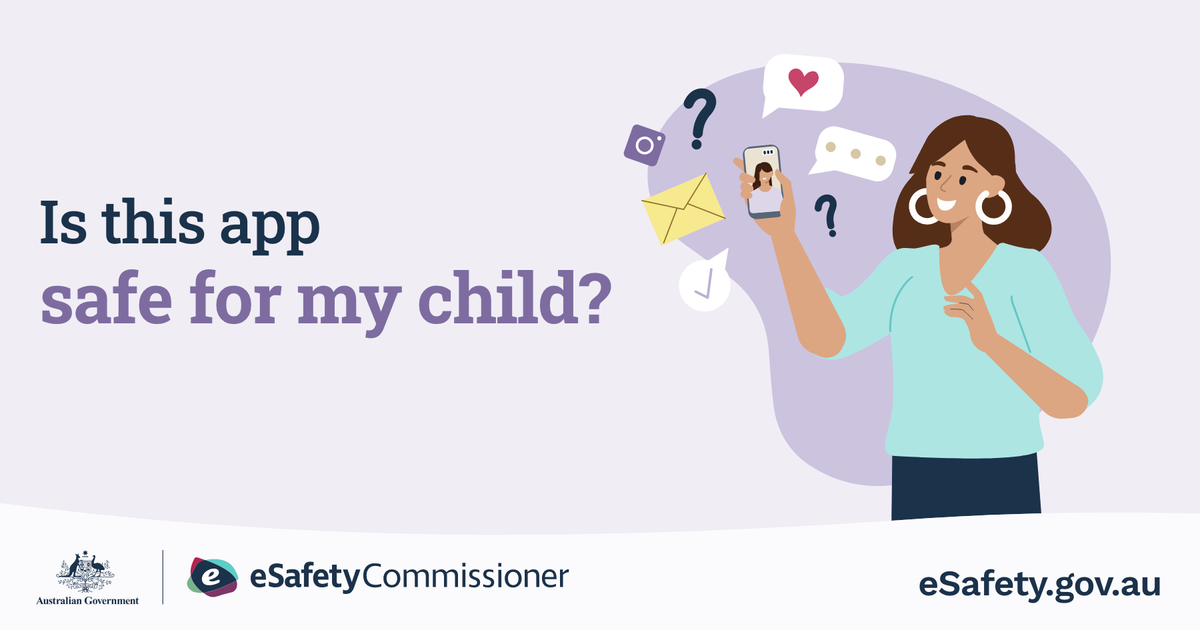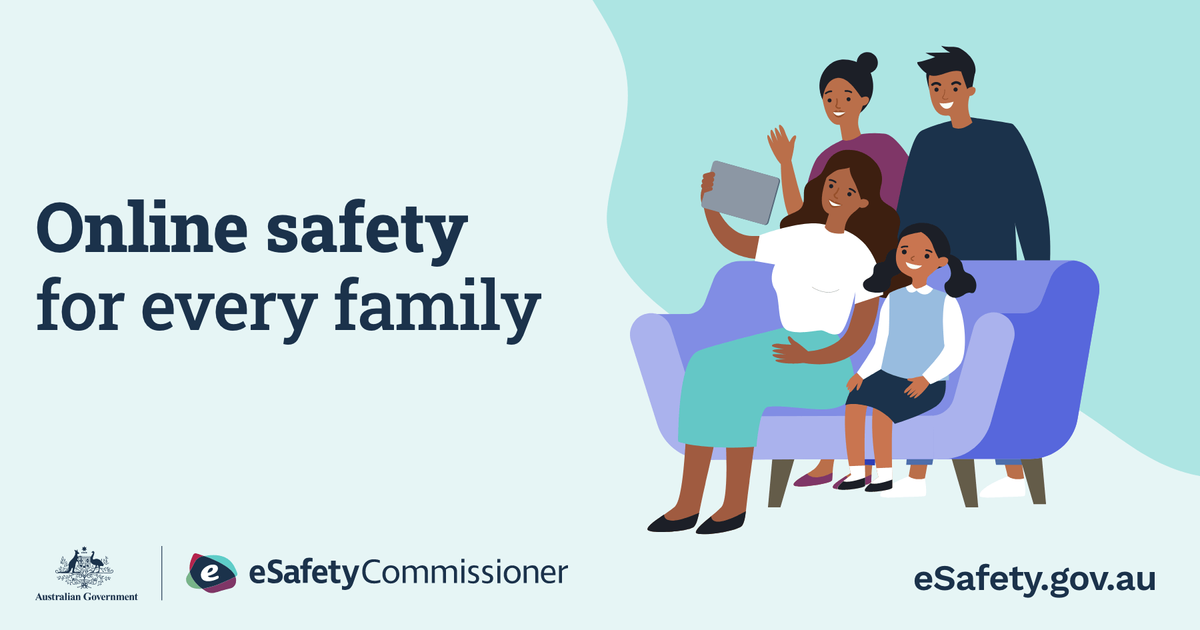SCHOOL HOLIDAYS
With the Easter holidays just around the corner, your children might be spending more time online for entertainment and to connect with their friends. As a parent or carer, you can help them have safe and positive experiences online. Have a conversation with your child today about how to stay safe online and to deal with online safety issues like cyberbullying, inappropriate content or unwanted contact. The eSafety Commissioner (eSafety.gov.au) has lots of great advice and resources for parents and carers to help keep young people safe online.
ONLINE GAMING
Online gaming provides children with lots of opportunities for skill development, beneficial play, creativity, self-expression, belonging, and social connection. To make sure they get the most out of gaming, parents and carers also need to help them build skills to navigate risks and put in safeguards. Are you familiar with the benefits or the risks your child might be experiencing whilst playing online games? Regardless of the console or device they use, what type of game they play, if they play alone or with others, or how often they play, it is important to understand your child’s unique gaming experience.
Playing online games with your children is a great way to learn more about their interests, while also developing a greater understanding of how they interact and communicate with others online. When adults get involved in positive ways it can also strengthen family relationships and enable families to manage conflict about gaming in more productive ways.
For more information on gaming and simple tips for how you can make this a safer and more positive experience, go to the parent's page of eSafety Commissioner's website. The eSafety Commissioner also has an eSafety Guide (eSafety.gov.au/esafety-guide) which includes the latest games, apps and social media, with information on how to apply safety and privacy settings, whether there are any risky digital features, and how to report abuse or other harmful behaviour.
Online challenges
Young people are spending more time online than ever before. And while it keeps them connected and allows them to work and play, it’s important to be aware of the risks.
For example, online challenges encouraging dangerous behaviours can quickly gain traction. What makes these challenges even more dangerous is that videos are live-streamed or posted on popular apps, spreading to a large and impressionable audience.
Read the eSafety Commissioner’s (eSafety.gov.au) advice on why it’s crucial to provide your child with early guidance and develop their critical reasoning skills as a protective strategy.
APPS AND GAMES
For many parents and carers, the clock is TikToking for when you might get asked by your child if they can go on social media or play games online.
These are tough calls for parents and carers, and especially those of our generation who don’t necessarily understand the increasingly important role digital environments play in the social lives and identity development of our children.
The eSafety Commissioner (eSafety.gov.au) website provides a range of advice to navigate this often-challenging area for families.
• Learn more about apps and games by viewing The eSafety Guide.
• Understand your child’s gaming experience by having conversations, watching or playing together.
• Talk with other parents and carers from school. This could be a good opportunity to learn more about how their children use an app or game and strategies to manage the technology.
Catherine Osadnik
Wellbeing Leader





